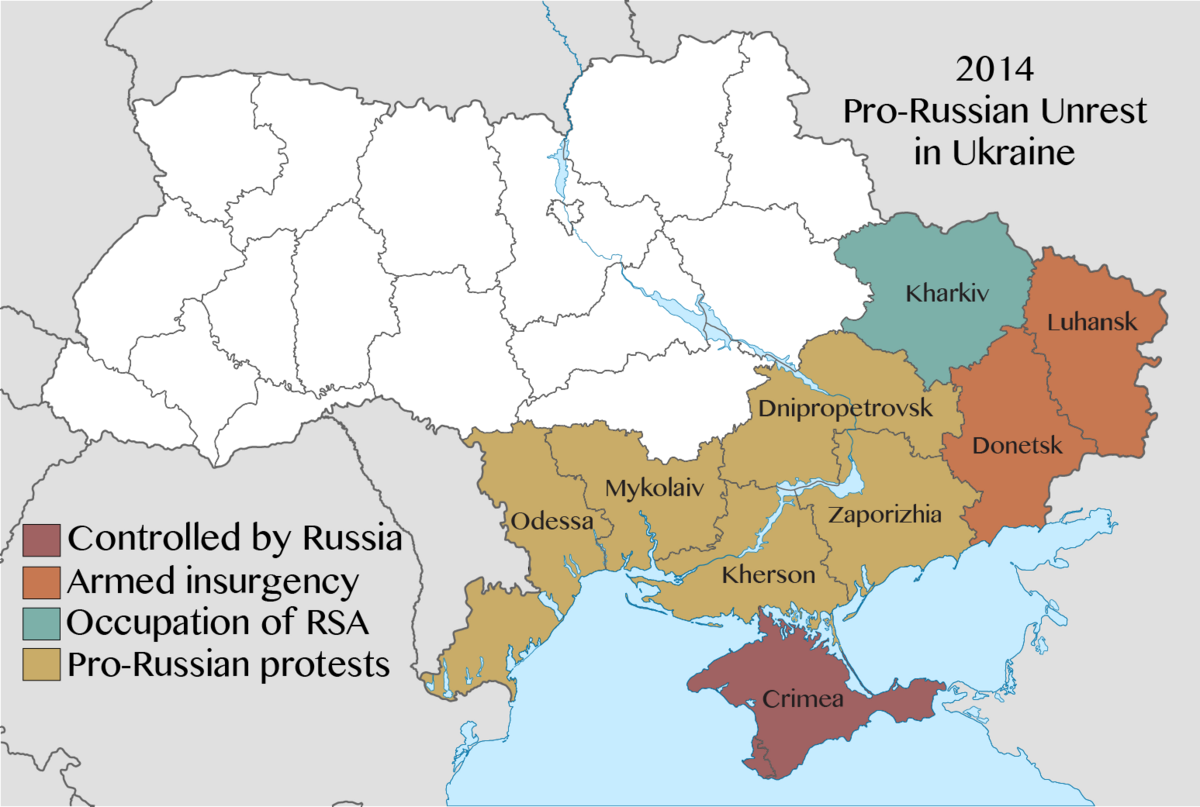- Dec 29, 2008
- 19,851
- 4,850
- 280
Not a single word of that is true. Russia and Ukraine got along fine until Putin came power and began to try to control the Ukrainian government. In 1994, Russia recognized the sovereign state of Ukraine and pledged not to violate its borders. Ukrainians of Russian ethnicity constituted only 17.2% of the population and even in the Donbass were only a minority in each district, and there is no evidence ethnic Russians wanted to live under a Russian dictatorship.The Russians and Ukies have been fighting off and on since 1991. The Russians ethnicists in the four eastern oblasts want to be in Russia, and the Uki neighbors do not.







